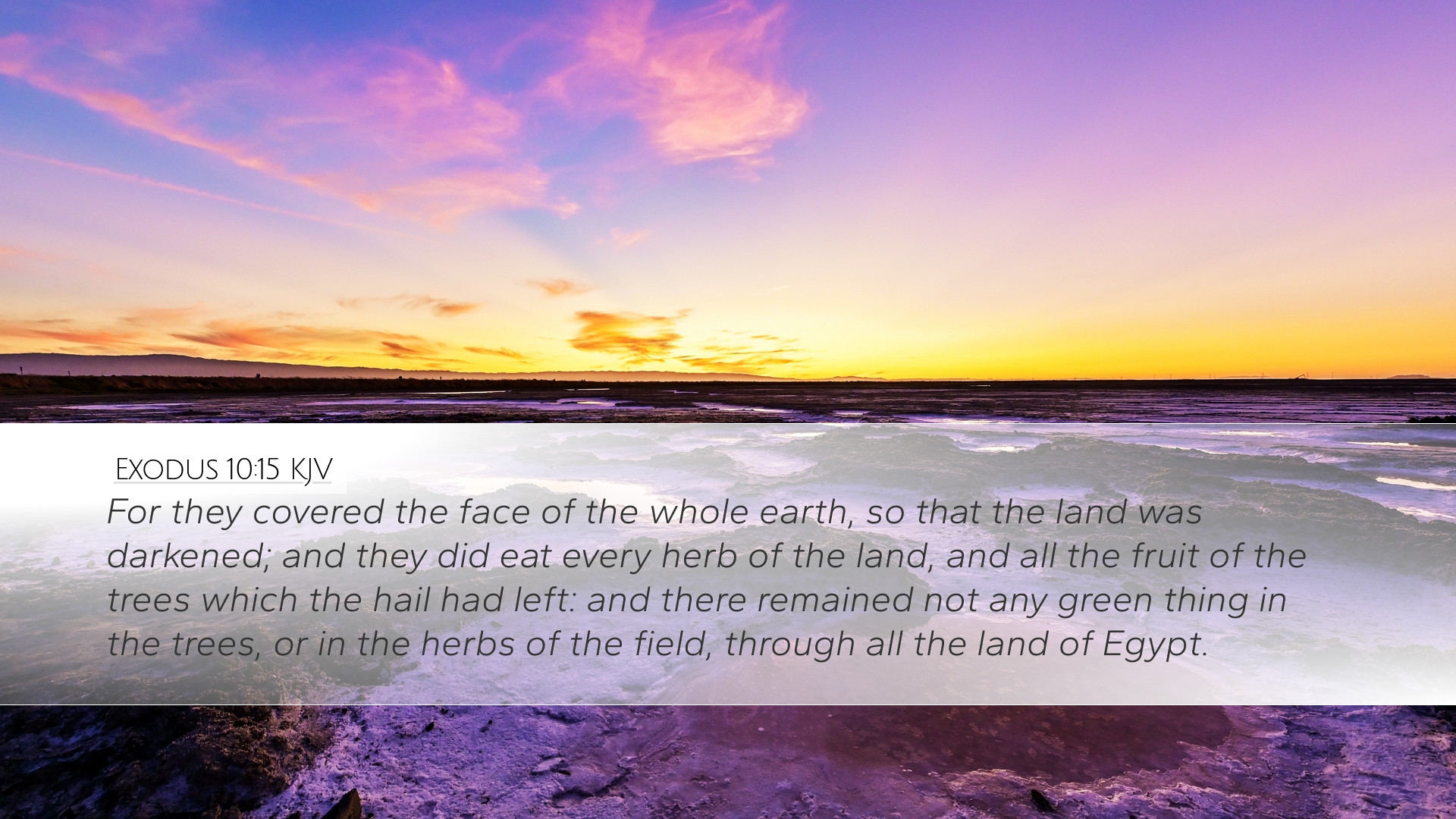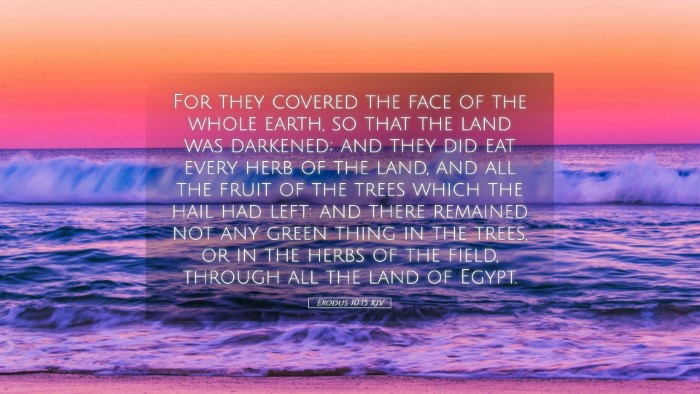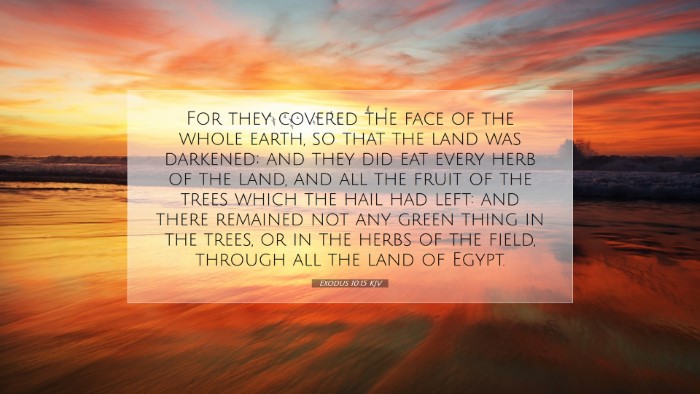Exodus 10:15 - A Commentary
Bible Verse: "For they covered the face of the whole earth, so that the land was darkened; and they did eat every herb of the land, and all the fruit of the trees which the hail had left: and there remained not any green thing in the trees, or in the herbs of the field, through all the land of Egypt."
Introduction
This verse captures the profound devastation wrought by the eighth plague in Egypt—locusts. As we unpack this text, we find a multilayered narrative filled with theological implications, historical context, and practical applications for contemporary readers. Drawing insights from notable public domain commentaries such as those of Matthew Henry, Albert Barnes, and Adam Clarke, this analysis aims to illuminate the rich depth of this scripture.
The Context of Exodus 10:15
The event described in Exodus 10 takes place during the confrontation between Moses and Pharaoh, representing God's power against the idolatry and obstinacy of Egypt. The locust plague follows the prior curses, intensifying the message of divine retribution against Pharaoh's refusal to heed God's command. This context is crucial for understanding the passage's full significance.
The Plague of Locusts
Matthew Henry's Insight: Matthew Henry highlights the fierceness of the locusts and their ability to bring complete destruction to the land. He notes that the phrase "covered the face of the whole earth" suggests an overwhelming quantity and the totality of destruction they brought.
Albert Barnes' Reflection: Barnes elaborates on the impact of this plague, emphasizing that it left Egypt desolate, reflecting God's judgment on a nation that persisted in rebellion. The imagery of darkness also represents spiritual blindness—a theme deeply significant for theological reflection.
Theological Significance
The locust plague serves as an expression of God’s sovereignty over creation. The utter darkness that covered the land illustrates not just physical calamity but symbolizes spiritual distress and judgment.
- God's Sovereignty: This event showcases God's control over nature and His ability to use it for His purposes.
- Judgment and Consequences: The devastation from the locusts is a direct consequence of Egypt's unwillingness to acknowledge God’s authority.
- Spiritual Blindness: The darkness represents the moral and spiritual blindness of Pharaoh and his people, who ignore divine warnings.
Understanding the Symbolism
Adam Clarke's Commentary: Adam Clarke points out the rich symbolism inherent in this event. The locusts can represent sin, which invades life and consumes all that is good. As locusts destroy vegetation, so does sin destroy spiritual vitality.
This illustration evokes the responsibility of believers to guard against the moral decay represented by the locusts. The passage serves as a stark reminder of the consequences of turning away from God’s commands.
Practical Applications
For pastors, theologians, and students of scripture, Exodus 10:15 evokes a number of important applications:
- Awareness of Impact: Just as locusts devastated Egypt, we must be aware of the impact of our actions on our spiritual lives and communities.
- Leadership and Responsibility: Consider the responsibility leaders have in guiding their communities toward acknowledging God’s authority.
- Repentance: The passage invites a call to repentance, acknowledging when we have been like Pharaoh, resistant to God's will.
Conclusion
The message of Exodus 10:15 transcends its historical context, offering profound insights into human nature and divine authority. By exploring the thoughts of esteemed commentators, we uncover layers of meaning that challenge us both individually and as a community of faith. This passage propels us toward introspection, urging us to recognize the shadows of spiritual darkness and the relentless call of repentance and renewal.
Further Reflection
As we reflect on this scripture, it becomes essential to ask how the themes of judgment, destruction, and divine sovereignty apply to our lives today. In what areas are we allowing 'locusts' to invade, consuming the vitality of our faith, our communities, and our relationship with God?


